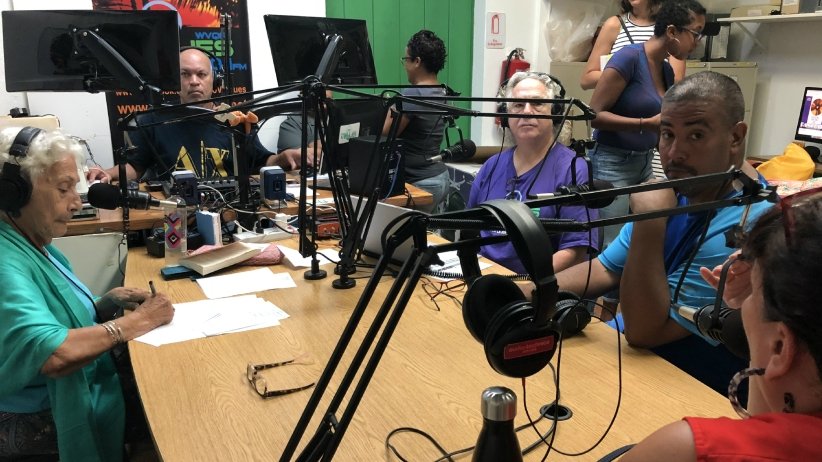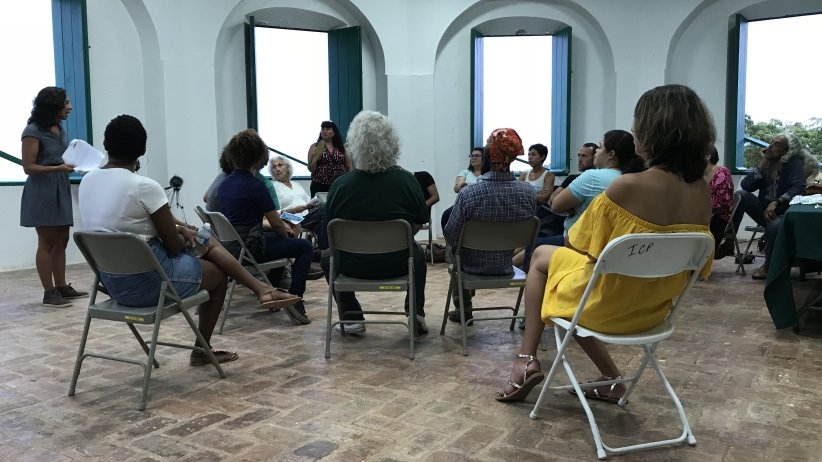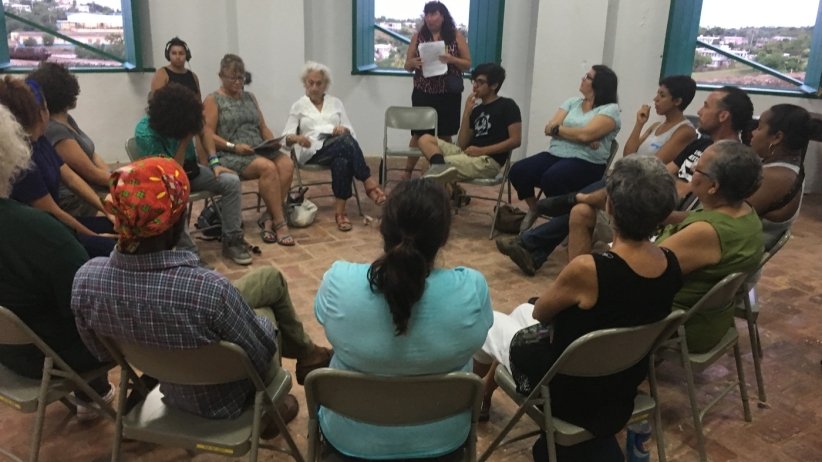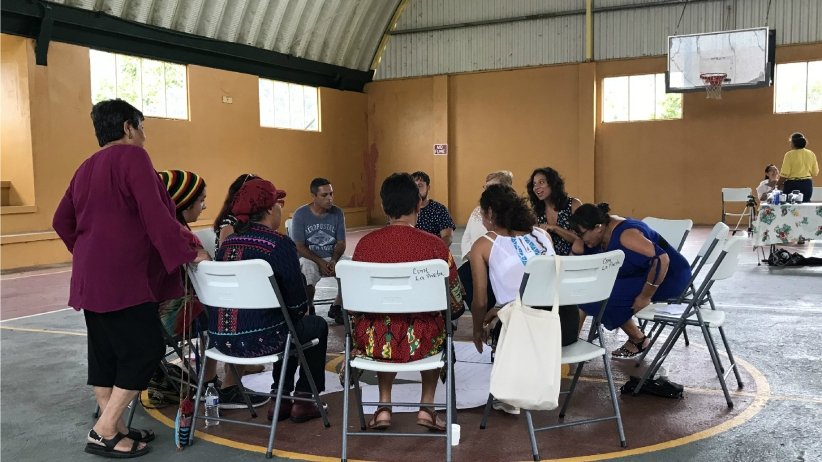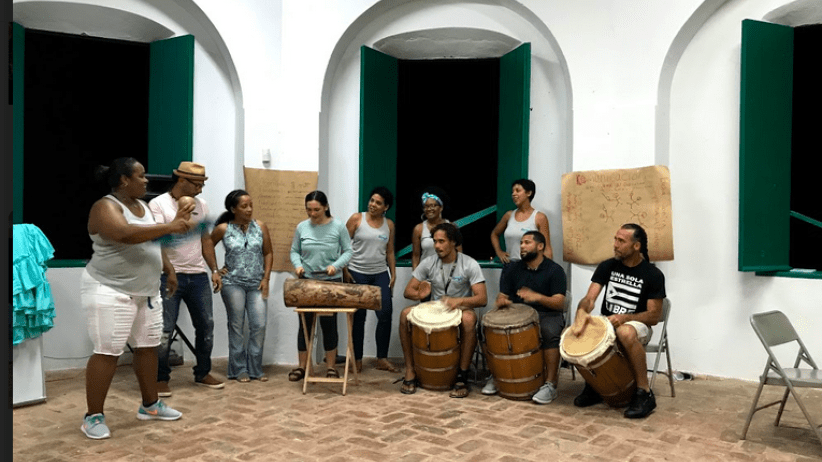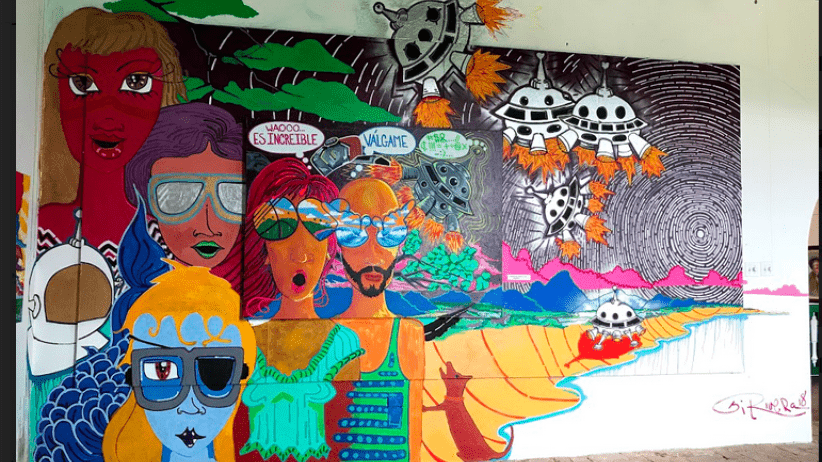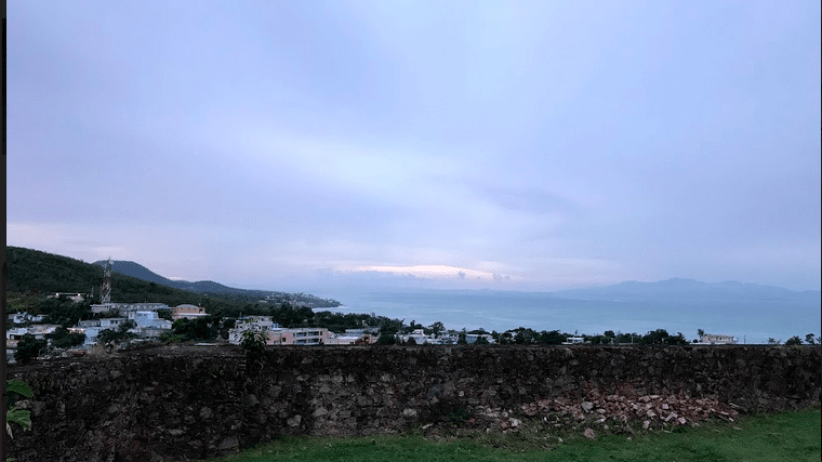Puerto Ricans Speak Out About Islands' Communications Crisis
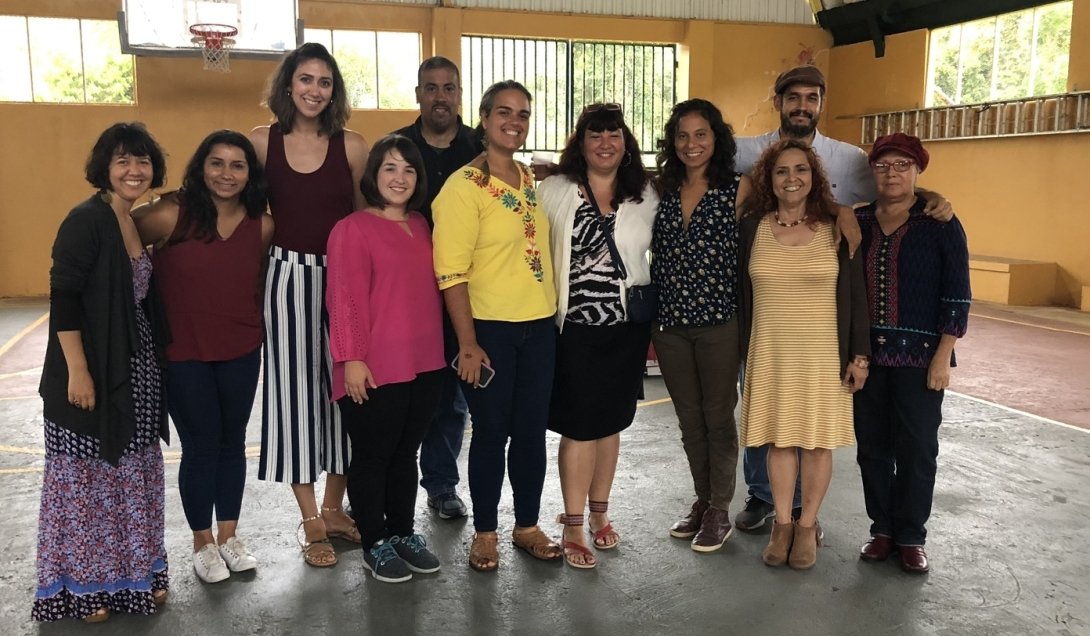
Free Press staffers and allies with some of the participants in our story circle in Comerio
Earlier this month, Resilient Just Technologies (RJT), the Center for Embodied Pedagogy & Action (CEPA) and Free Press hosted small-group discussions in Puerto Rico to learn more about how the collapse of the islands’ communication networks in the wake of Hurricanes Irma and Maria impacted people’s lives.
The hurricanes that struck last year devastated Puerto Rico’s infrastructure. They left the islands without power and nearly the entire population without phone and broadband service. Between 3,000–5,000 people died. And residents’ inability to make a call or use the internet to seek help contributed to the death toll.
To date, the Federal Communications Commission has adopted policies that award $750 million to telephone and broadband carriers to restore service and build more resilient communications networks in Puerto Rico. But the Commission has failed to hold any public hearings in Puerto Rico to inform its policymaking.
And we know that companies that receive federal funding often fail to keep their promises, which is why we have to ensure they’re held accountable. Even now, more than a year after Maria made landfall, the islands’ communications networks have yet to be fully restored, and both internet and cell service remain spotty.
Over the past year, Free Press has worked with allies to ensure the voices of Puerto Ricans were heard by lawmakers and regulators who were creating policies to restore and rebuild services on the islands. And we’ve called on the FCC to appoint an independent commission to investigate all of the causes of the communications crisis — and to develop recommendations on how the U.S. government can prevent such failures in the future.
Listening to Puerto Ricans’ stories
But we also wanted to travel to Puerto Rico and hear directly from Puerto Ricans about the failure of the communication networks — as well as their vision for a just communications system for their communities.
Free Press partnered with Teresa Basilio, who heads up RJT, a community-technology project that works with organizers on the frontlines of the racial-, economic- and climate-justice movements. The project is currently collaborating with organizers in Puerto Rico.
Basilio recommended using story circles to enable Puerto Ricans to share their stories in a supportive environment to promote healing and community building.
As Basilio has written, story circles are “intimate community gatherings” that seek to “involve people in sharing with each other their stories, and with the goal of sharing these stories more broadly to promote our self-determination, resilience, and resistance.”
She’s also noted that story circles “offer an opportunity for Puerto Ricans to … explore the history and impacts of colonialism on the configuration of the islands’ communication system and forge a vision of the future for communications and connection that truly serve Puerto Ricans.”
Basilio facilitated the story circles with Melissa Rosario from CEPA. Rosario provided healing-justice support to participants who were recounting their personal stories of trauma. CEPA’s mission is to “foster the decolonization of Puerto Rico through initiatives which support … individual and collective capacity to live in wholeness.”
We hosted the first story circle with Radio Vieques at its headquarters on the island of Vieques. Nineteen local residents took part.
We held our second story circle in Comerio, a small town located in the mountains in the central part of the main island. We worked closely with community-health and wellness advocates Caminando la Utopía to organize that gathering, which nine people participated in. Following the story circle our partners held their weekly community-health project for approximately 50 people.
During the two story circles, participants reflected on how the loss of communications limited their mobility because they didn’t know where to search for food or water. They also shared that they were afraid to leave their houses due to mudslides in the area. And there were no media outlets informing them of where it was safe to travel, find medical care or seek out loved ones.
One young man who was unable to contact his grandmother following Hurricane Maria shared his experience. It was the first time that his grandmother, who also participated in the story circle, heard about what her grandson had endured.
The story circles also included discussions on what a just communications system would look like for the communities of Vieques and Comerio. Participants talked about the need to use ham radio and other alternative ways to communicate and stay connected. They also commented that technology has often served as a distraction that has left them feeling less connected to each other and to their neighbors.
One participant in the Vieques story circle said the words “nos hacia falta” (“we needed it”) to express how the experience provided an opportunity for the community to have a discussion it didn’t realize it needed to have.
We plan to provide a more extensive report-back about our visit to Puerto Rico and what we learned in the weeks ahead on Free Press’ podcast, The Connection. And we’re in the process of producing a short video that we will release as well.
We’re planning to hold more story circles in the near future, including one in Holyoke, Massachusetts, and one in the Bronx, both of which have large Puerto Rican communities. We also plan to return to Puerto Rico in 2019.
And in the meantime, we will continue to fight to ensure that Puerto Ricans’ voices are heard in the struggle for a just communications system as the rebuilding efforts on the islands continue.
